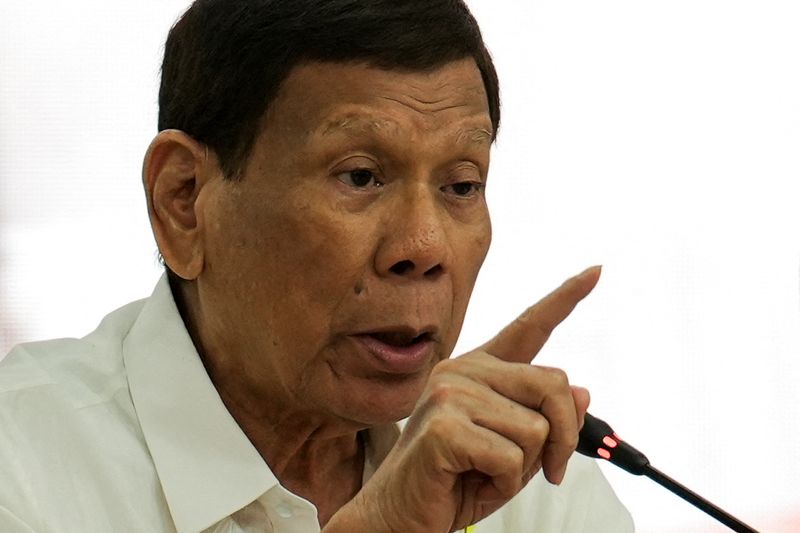Tech policy: 20 people to meet at Tory conference
We break down the 20 figures shaping the Conservatives’ tech policy in opposition.

LONDON — They may have suffered a historic defeat, but many in the Conservative Party feel that instilling a renewed sense of the central role that tech will play in shaping the U.K.’s long-term prospects could be one of their most lasting contributions after 14 years in government.
Building on that legacy could have a crucial role in the party’s own rebuilding efforts. If they are to succeed, the 20 politicians, advisers and thinkers listed below will have a key role in making it happen.
The politicians
Rishi Sunak
|
Rishi Sunak | Jeff Overs/BBC via Getty Images |
Former prime minister and now (interim) leader of the opposition, Rishi Sunak’s love of tech is well-known — so much so that his stint in No. 10 was dogged by (as yet unsubstantiated) rumors that he was lining up a lucrative job in Silicon Valley.
Under Sunak’s watch, the government formed a standalone tech ministry — the Department for Science, Innovation and Technology — and set up an AI Safety Institute after hosting the world’s first global summit dedicated to keeping the emerging technology safe. That the Labour government has embraced these totemic policies speaks to Sunak’s lasting imprint on the U.K.’s approach to tech, and as leader of the opposition he has urged his successors to build on his legacy.
Andrew Griffith
|
Andrew Griffith | Leon Neal/Getty Images |
As Technology Secretary Peter Kyle’s opposite number, Andrew Griffith was appointed to the role of shadow secretary of state for tech after his predecessor, Michelle Donelan, lost her seat at this year’s general election. Griffith is a political bruiser who has emerged as the one of the Tories’ fiercest attack dogs since they’ve been in opposition, leading the charge against Labour’s appointment of loyalists to the civil service and slamming its decision to pause compute investments.
His attacks against Labour’s running of DSIT are strengthened by the fact that Griffith himself was a minister in the department as recently as three months ago. He’s a close ally of Boris Johnson, lending the former PM his £9.5 million townhouse for his campaign HQ in 2019.
Tom Tugendhat
|
Tom Tugendhat | Carl Court/Getty Images |
The Tory leadership field isn’t blessed with tech expertise, but Tugendhat’s previous stint as security minister gives him an edge. He took on Meta over images of child abuse and encryption, and his brief also included responding to fears about Chinese ownership of TikTok and use of Chinese state technology on British soil. The former soldier is presenting himself as a fresh face in the leadership contest despite serving in the previous government, and polling ranks him as the most well-liked candidate among the public.
Alicia Kearns
Kearns defines herself as a “one nation” Tory, but is best known as one of parliament’s fiercest China hawks. She used her platform as chair of the foreign affairs committee until July’s general election to call on the government to set out a more forceful China policy, and has raised alarms about data collection, online influence and cyber espionage campaigns by hostile states. In that regard, her past life as an official in the Foreign Office, where she specialized in disinformation and counter-terrorism, serves her in good stead.
George Freeman
|
George Freeman | Facundo Arrizabalaga/EPA-EFE |
Few in the party are more passionate about science and tech policy than the Mid Norfolk MP. He was science minister in the last government but was never trusted with a Cabinet role. In opposition, Freeman has used his experience in government and industry to continue banging the drum for his favorite topics, speaking in parliament about industrial strategy and calling for cross-party work on science and tech policy.
Katie Lam
A rare bright spot for the Conservatives on July 4 was comfortably winning the new seat of Weald of Kent, sending Lam to the Commons. Lam quit her job as chief of staff at AI firm Faculty to contest the seat after a closely-fought selection process, further deepening Faculty’s ties to the Tories. Before joining Faculty, she was chief policy adviser at Portland, a special adviser to Suella Braverman and deputy chief of staff to Boris Johnson while he was in No.10.
Caroline Dinenage
|
Caroline Dinenage | Andreas Solaro/AFP via Getty Images |
A former digital minister under Johnson, Caroline Dinenage is currently in her second term as chair of the culture, media and sport committee. Although the committee had the “digital” part of its remit carved off following the creation of DSIT, its work still occasionally touches on tech, particularly on its impact on the creative sectors and media. Dinenage is recognized as one of the pioneers of the Online Safety Act and received a damehood for her efforts in 2022.
Tina Stowell
|
Tina Stowell | Justin Tallis/AFP via Getty Images |
Another committee chair, Stowell leads the ever-active Lords digital and communications committee, which has in recent months taken on meaty subjects including large language models and the future of news. Wasting no time since parliament opened in July, it has already taken evidence on the new digital competition rules and has launched an inquiry into AI and creative tech.
Stowell has long been an influential figure in the upper chamber scrutinizing and holding the government to account on tech policy. She was strongly in favor of the Digital Markets, Competition and Consumers Act and encouraged the last government to take a firmer stance on AI regulation and protecting copyright holders.
The advisers
Will Tanner
Tanner was a key adviser to Rishi Sunak on tech while he was in No. 10, and he still lends his expertise to the former PM now he’s in opposition. Tanner played a crucial role in driving the last government’s push to protect kids from the ills of technology, and even advocated for ideas like upping the minimum age limit on social media and introducing a ban on smartphones in schools. While those never materialized, they are unlikely to go away.
Jamie Njoku-Goodwin
A trained pianist, chess fanatic and one-time aide to election strategist Lynton Crosby, Nkoju-Goodwin is another key Sunak lieutenant still working with the Tory leader in opposition. The charismatic former head of music industry lobby group UK Music played a key role in influencing the former government on the contentious issue of AI and copyright. That the Sunak administration decided against its initial instinct to woo AI labs by giving them a free pass to hoover up copyrighted works to train their models is thanks in no small part to him.
Pierre Andrews
As special adviser to ex-Culture Secretary Lucy Fraser, Andrews was one of the last government’s key players in banging the drum for the creative sector in the AI copyright battle. Prior to his SpAd-ing role, Andrews worked as a parliamentary researcher to Damian Collins, a former tech minister and science committee chair who made his name grilling tech execs during the Cambridge Analytica scandal. Andrews recently rejoined Flint Global, the public affairs firm he worked for previously.
The influencers
David Willetts
|
David Willetts | Peter Nicholls/Getty Images |
The former science minister stepped down as an MP in 2015 but has kept busy in the tech policy world, arguing that the government should act boldly to pick and back future technologies like semiconductors, robotics and AI amid a global race for tech superiority. He was commissioned by DSIT to review how the department’s investment bids are assessed by the Treasury. He is chair of the Resolution Foundation, the Foundation for Science and Technology, Innovate Cambridge and the UK Space Agency, as well as a board member at Darktrace.
William Hague
|
William Hague | Henry Nisholls/AFP via Getty Images |
Another party grandee, the ex-party leader admits he’s “slowly turning” into a “nerd.” He frequently uses his weekly Times column to bang the drum on tech policies most media pay little attention to, most recently exascale compute and Labour’s plans for a Regulatory Innovation Office. His tech advocacy has seen him become buddies with former rival Tony Blair; the pair have co-authored papers on science and tech.
Hague is also chair of consultancy firm Haklyut’s international Advisory Board and wants to become Oxford’s next chancellor, too. It’s quite the reinvention from the dorky leader of the opposition who was trounced by Blair in 2001.
Allan Nixon
Nixon is tech policy chief at center-right think tank Onward, and has published papers on university spinouts, frontier technologies and pension reform. Co-founded by Will Tanner, Onward was influential under Sunak’s premiership, but has now repositioned towards Labour, having seen its idea for a National Data Library taken up by Technology Secretary Peter Kyle. Nixon was previously a SpAd to Matt Hancock and Tom Tugendhat.
Matthew Feeney
Feeney is head of technology at another influential think tank in Conservative circles, the Centre of Policy Studies (CPS). He came from libertarian outfit the Cato Institute where he focused on emerging technologies. At CPS he has published papers on regulation and made the case for more checks on the Competition and Markets Authority as it takes on new powers overseeing the biggest tech companies.
Matt Sinclair
The former adviser to Liz Truss now heads the British arm of the CCIA, an industry group that lobbies aggressively on behalf of its Big Tech membership. An economist who spent over six years at the influential TaxPayers’ Alliance think tank before joining professional services giant Deloitte, Sinclair was brought in to assist Truss during her short-lived premiership, and is well-known for his full-blooded free-marketeer views, having previously made the case for a smaller and less interventionist state.
Miriam Cates
Under Sunak’s government, Miriam Cates rose to become an influential backbencher by whipping up culture war issues like sex education in schools and concerns over “trans ideology.” A vocal online safety advocate, she also spearheaded a movement to ban smartphones for under-16s. Cates lost her seat in the July election, but has since made a fitting transition to host at GB News. She’s said she intends to step away from politics to focus on media, but is still writing Conservative Home articles lobbying the Tories on her favorite issues.
Ben Mascall
Mascall is a one of the Tory party’s most experienced spinners, having spent around a decade in various government and party roles, including as head of strategic communications at No. 10, as deputy director of comms for the party during the 2015 election and as adviser to Defense Secretary Michael Fallon in 2015. He was also director of comms for Rishi Sunak’s first (unsuccessful) leadership campaign, before joining Peter Thiel’s Palantir in August 2022, where he has been helping the controversial data firm navigate choppy waters as it takes on an increasing share of government contracts, including for the NHS.
Sarah-Jane Sewell
By day a consultant for Shearwater Global, by night director of Digital Tories, and currently working on James Cleverly’s leadership campaign. Sewell got involved with the Digital Tories, a group convening tech policy thinkers within the party, in 2021, where she’s built an impressive network. She is a former assistant to Conservative MP Matt Warman and former technology minister and Conservative peer Syed Kammall. She also worked on Liz Truss’ leadership campaign.
Resham Kotecha
A go-getter with an impressive array of jobs and side hustles, Resham Kotecha is an active member of the Tory party and a name to watch for the future (she’s already stood for parliament twice). Currently, she’s head of policy for the Open Data Institute, the nonprofit set up by Tim Berners-Lee and Nigel Shadbolt, and is an advisory council member for the Smart Data Council, a body set up by government to help replicate the success of open banking in other sectors. She’s also the head of engagement for Women2Win, an organization cofounded by former Tory PM Theresa May to get more women elected to parliament, and runs her own public speaking training agency, Podium Perfect. Woof!
What's Your Reaction?



























:quality(85):upscale()/2024/09/09/785/n/1922283/901e710666df358b373de2.40207443_.jpg?#)
:quality(85):upscale()/2024/07/23/904/n/1922283/dc92642c66a0159ee98db4.72095370_.jpg?#)
:quality(85):upscale()/2024/07/10/842/n/1922283/8fb902af668edd399936b2.17277875_.jpg?#)
:quality(85):upscale()/2024/06/07/909/n/1922283/82a389f8666372643f2065.06111128_.jpg?#)
:quality(85):upscale()/2024/06/07/726/n/1922283/10bee64e666334778cf548.63095318_.jpg?#)
:quality(85):upscale()/2025/02/27/808/n/1922398/26784cf967c0adcd4c0950.54527747_.jpg)
:quality(85):upscale()/2025/02/03/788/n/1922283/010b439467a1031f886f32.95387981_.jpg)
:quality(85):upscale()/2025/01/08/844/n/1922398/cde2aeac677eceef03f2d1.00424146_.jpg)
:quality(85):upscale()/2024/11/27/891/n/1922398/123acea767477facdac4d4.08554212_.jpg)















:quality(85):upscale()/2024/02/21/214/n/1922283/8118faa965d6c8fb81c667.06493919_.jpg?#)



